World Languages
The ability to speak another language is a powerful asset. This is true for individuals and for society.
At the Center for Applied Linguistics, we are committed to seeing teaching and learning thrive in all languages for learners at every level—from young children to adults.
Our work spans the globe. Since 1959, we have been a trusted partner helping to promote language teaching and learning through our work with institutions, programs, and teachers. Our vision is to help programs and educators succeed by providing the highest quality resources, research, and support.
Working with all types of world language programs, CAL’s experts create practical, effective solutions that are customized to local needs. We create assessments, design interactive professional development, and conduct research and evaluations.
Through our world language services and research activities, CAL is committed to supporting language learning and cultural understanding in the U.S. and around the world.
CAL’s World Languages Team Can Help You Achieve Your Goals
CAL offers virtual, in-person, and hybrid models of professional development, technical assistance, assessment support, and tailored services for educators of world languages at all levels of instruction.
We provide the following services:
- program evaluation;
- needs assessment;
- program design services;
- curriculum review;
- assessment development;
- review of local language assessments, rubrics, and rater training materials;
- professional development; and
- research studies.
Our services are tailored for your target audience: for teachers, administrators, schools, districts, and/or other institutions that are planning or implementing programs for language learners.
CAL’s World Languages team is pleased to offer research solutions resulting in written reports and presentations based on quantitative, qualitative, and mixed methodologies. Our research capacities include literature reviews, classroom observations, focus groups, interviews, surveys, review of extant program data, and proficiency testing.
Heritage Language Education
Heritage language learners are students with a cultural or familial relationship to a language. As the U.S. faces a shortage of adults with proficiency in languages other than English, the languages spoken in communities across the United States can be harnessed and developed to address this shortage. Spanish, Chinese, Hindi, Vietnamese, Arabic, and Korean count among the largest language groups most commonly spoken in the home. World language enrollment in U.S. schools does not fully reflect the numbers of heritage language communities in the country and heritage language speakers in schools. However, the pool of students who enter schools with some degree of proficiency in another language presents a tremendous resource if they can continue to develop their language skills.
CAL is an advocate for heritage language learning because we believe students’ language and cultural backgrounds are a powerful asset. Through our work with partner institutions, we advocate and develop resources for heritage language programs and educators, and conduct research about best practices for working with this population.
Projects

Funder: U.S. Department of Education, International Research and Studies Program

Funder: U.S. Department of Education, International Research and Studies Program
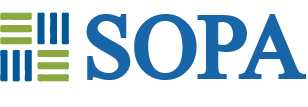
Funder: U.S. Department of Education, International Research and Studies Program

Funder: U.S. Department of Education
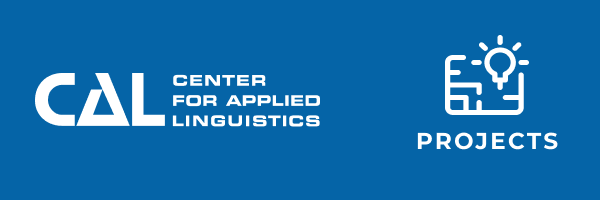
Funder: U.S. Department of Education, International Research and Studies Program

Funder: U.S. Department of Defense
News and Resources
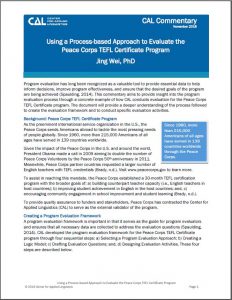
Jing Wei, PhD
November 2018
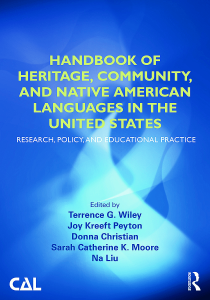
Edited by Terrence G. Wiley, Joy Kreeft Peyton, Donna Christian, Sarah Catherine K. Moore, Na Liu
Published by Routledge and the Center for Applied Linguistics
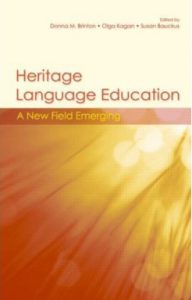
Edited by Donna Brinton, Olga Kagan, Susan Bauckus
Published by Routledge
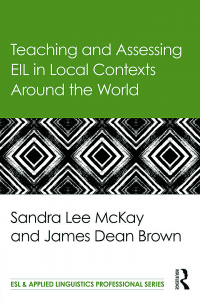
Sandra Lee McKay and James Dean Brown
Published by Routledge


